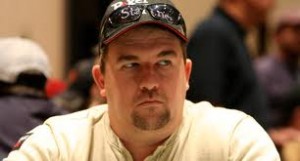 Professional poker players always say that the best thing about being a professional is doing whatever they want, whenever they want. Most people who say this actually mean that they enjoy not having a real job and the restrictions that come with it: a boss, a set work schedule, and a base salary. The majority of poker players don’t realize, however, that they’ve fallen into their own sort of monotonous rigidity and didn’t really think about how to play poker professionally before turning poker into a career.
Professional poker players always say that the best thing about being a professional is doing whatever they want, whenever they want. Most people who say this actually mean that they enjoy not having a real job and the restrictions that come with it: a boss, a set work schedule, and a base salary. The majority of poker players don’t realize, however, that they’ve fallen into their own sort of monotonous rigidity and didn’t really think about how to play poker professionally before turning poker into a career.
For example, how many professional tournament players ever take a Sunday off? I don’t have any numbers to back this up, but given the turnout for multi-table tournaments (MTTs) on Sundays, I doubt many pros even consider taking the day off unless it’s an emergency. That’s just the way it is; Sundays rule a poker player’s life.

But why is that? Why doesn’t a poker player take Sunday off if he has a wicked headache? Granted, the most successful players have the self-discipline to be their own boss, which is probably why they’re the best, but most players don’t. They’ll wake-up to the sound of their alarm, groan in agony when they feel their temples throbbing, and stumble out of bed because the Sunday Warm-Up starts in 15 minutes. Doesn’t that sound familiar to Joe the bank teller and Ron the marketing analyst on a Monday morning?
Furthermore, let’s take a look at the end results. Both the bank teller and marketing analyst go to work despite their ailments and although they have rough days and make a few minor mistakes, they come home having earned their usual wages. The poker player, on the other hand, has a pounding headache, but registers for the full slate of tournaments. His headache only worsens as the day wears on, but he chooses to persevere even though he’s playing his C-game. When it’s all over, he’s lost $2,500.
The moral of the fictional story is this: poker players need to be their own bosses. Instead of reveling in the fact that they don’t have a job, they need to realize that playing poker is their occupation. There’s nobody to keep them in line but themselves. Due to the nature of the game, the poker player may still have lost that $2,5000 even if he felt like a million bucks, but at least then he could feel good about himself for playing his best. Self-loathing is all that comes with losing money through poor play and it certainly doesn’t help a player’s confidence going forward.
Top 7 Tips on How to Play Poker Professionally

It’s all been said before, but prior to making the decision to go pro, or even if you just plan on playing very seriously on the side, be sure to keep the follow guidelines in mind:
- Be your own boss. Recognize that you do have a boss: yourself.
- Don’t play if you’re tired or sick. It’s not worth it. Save the buy-ins for when you’re feeling optimal.
- Don’t play if you are dreading the session. There’s nothing worse than actually looking forward to busting, just so you don’t have to keep on playing. Avoid this by not even registering. Find something else to do.
- Maintain your social life. You need to have something else besides poker and what better outlet than your friends. Schedule one night a week where you go out with friends and don’t even think about poker.
- Take breaks. If people are taking vacations from real jobs, you should be taking a vacation from your job, too.
- Be honest with yourself. You can always improve as a player, so never settle for your current level. Always play the game with an open mind and a willingness to listen to different perspectives.
- Be your own boss. Nobody else will.

Comments are closed.